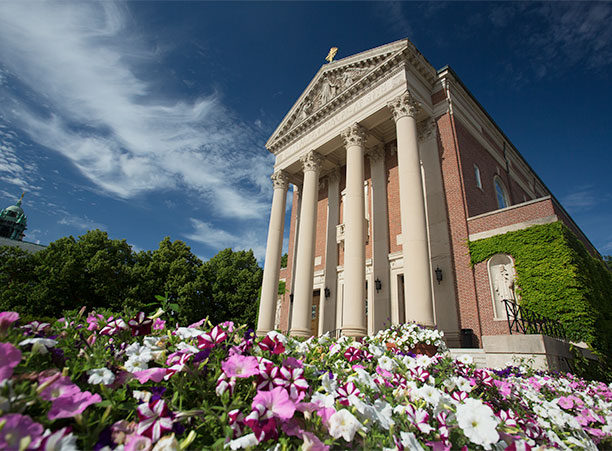 Two members of College of the Holy Cross community were recently featured on Crux, the Boston Globe’s national website on Catholicism. Mathew N. Schmalz, associate professor of religious studies at the College and contributor to Crux, and Michelle Sterk-Barrett, director of the Donelan Office of Community-Based Learning at the College and a rising expert on issues of service, question and discuss of the ‘Mercy of God’ and ‘God’s work’ in their respective articles.
Two members of College of the Holy Cross community were recently featured on Crux, the Boston Globe’s national website on Catholicism. Mathew N. Schmalz, associate professor of religious studies at the College and contributor to Crux, and Michelle Sterk-Barrett, director of the Donelan Office of Community-Based Learning at the College and a rising expert on issues of service, question and discuss of the ‘Mercy of God’ and ‘God’s work’ in their respective articles.
In his article “The abyss of mercy,” Schmalz questions the ‘Mercy of God,’ a prominent theme in Christian understanding of God in his article: “Simply put, how can a merciful God allow so much human suffering?”
Schmalz questioning began with the announcement made by Pope Francis on the eve of the second Sunday of Easter—the Feast of Divine Mercy—that declared the extraordinary Holy Year of Mercy.
“The choice of the Divine Mercy Sunday for this proclamation of the extraordinary Holy Year marks a point of continuity between the pontificate of Pope Francis and those of his predecessors. Popes Benedict XVI and St. John Paul II were both instrumental spreading the devotion to The Divine Mercy throughout the world,” explains Schmalz.
As Schmalz reflects on certain memories throughout the article he recounts, “Mercy is a connection, not a cure from above. Mercy is the essence of God — the quality from which all others proceed.”
Attempting to answer another troubling question, Sterk-Barrett explains that service experience has a huge impact on the future trajectory of both Christian formation and citizen engagement in the article, “What is the point of service, really?”
Sterk-Barrett calls service an “eye-opening experience” in a society where many adults “have made decisions that prevent our children from knowing those facing injustice in the world. In a desire to have our children have access to the best educational opportunities and minimize the potential for them to live in unsafe environments, we have collectively segregated ourselves, so that it’s nearly impossible to know and build relationships with people living in poverty.”
The result of this segregation: “Stereotypes [that] perpetuate the belief that the poor are fundamentally inferior to those who have been ‘successful’ in traditional terms.”
Service, if done well, has the power to transform.
- Read the full article "The abyss of Mercy"
- Read the full article "What is the point of service, really?"
This “Holy Cross in the News” item by Jacqueline Smith ’15.